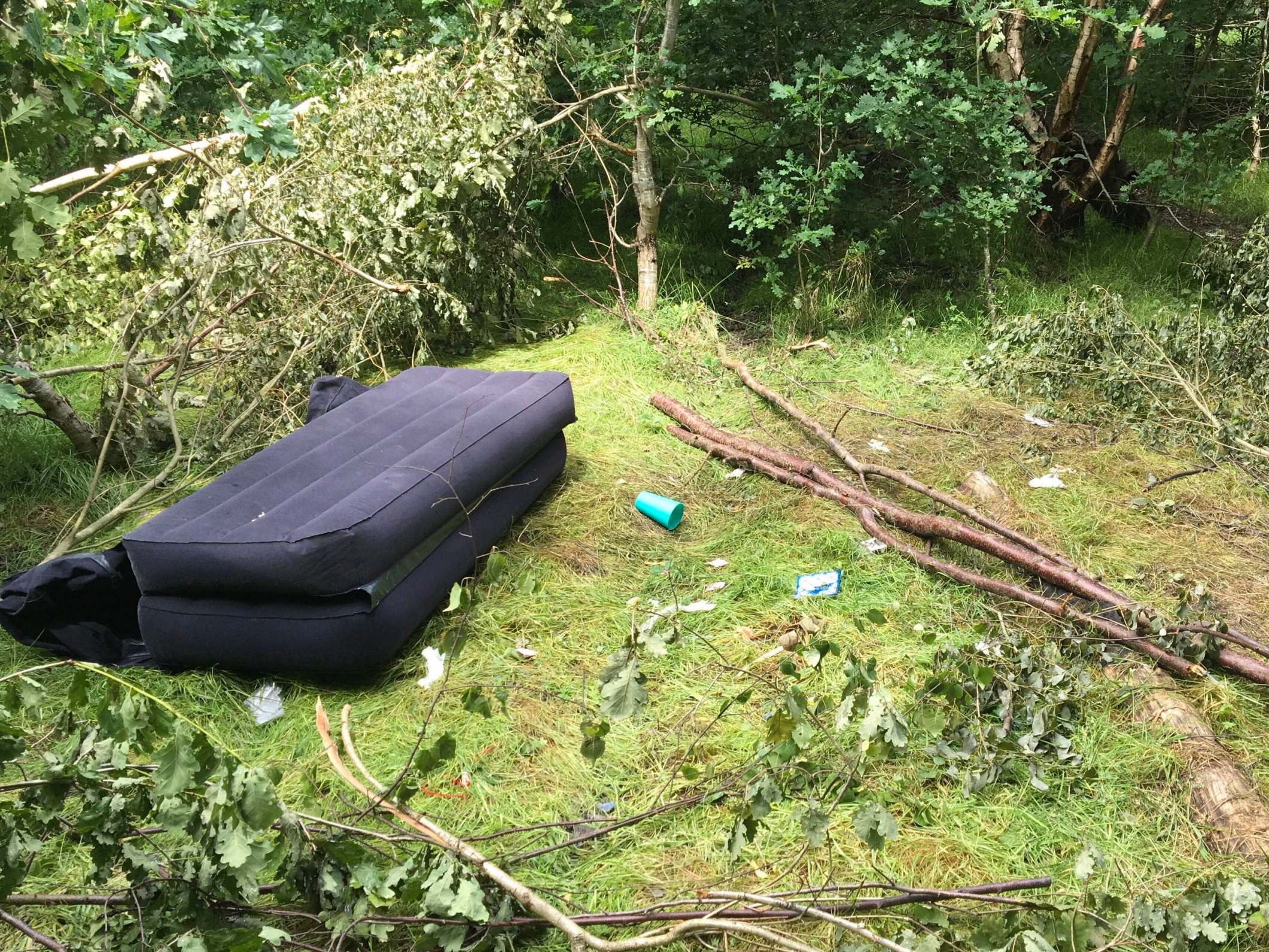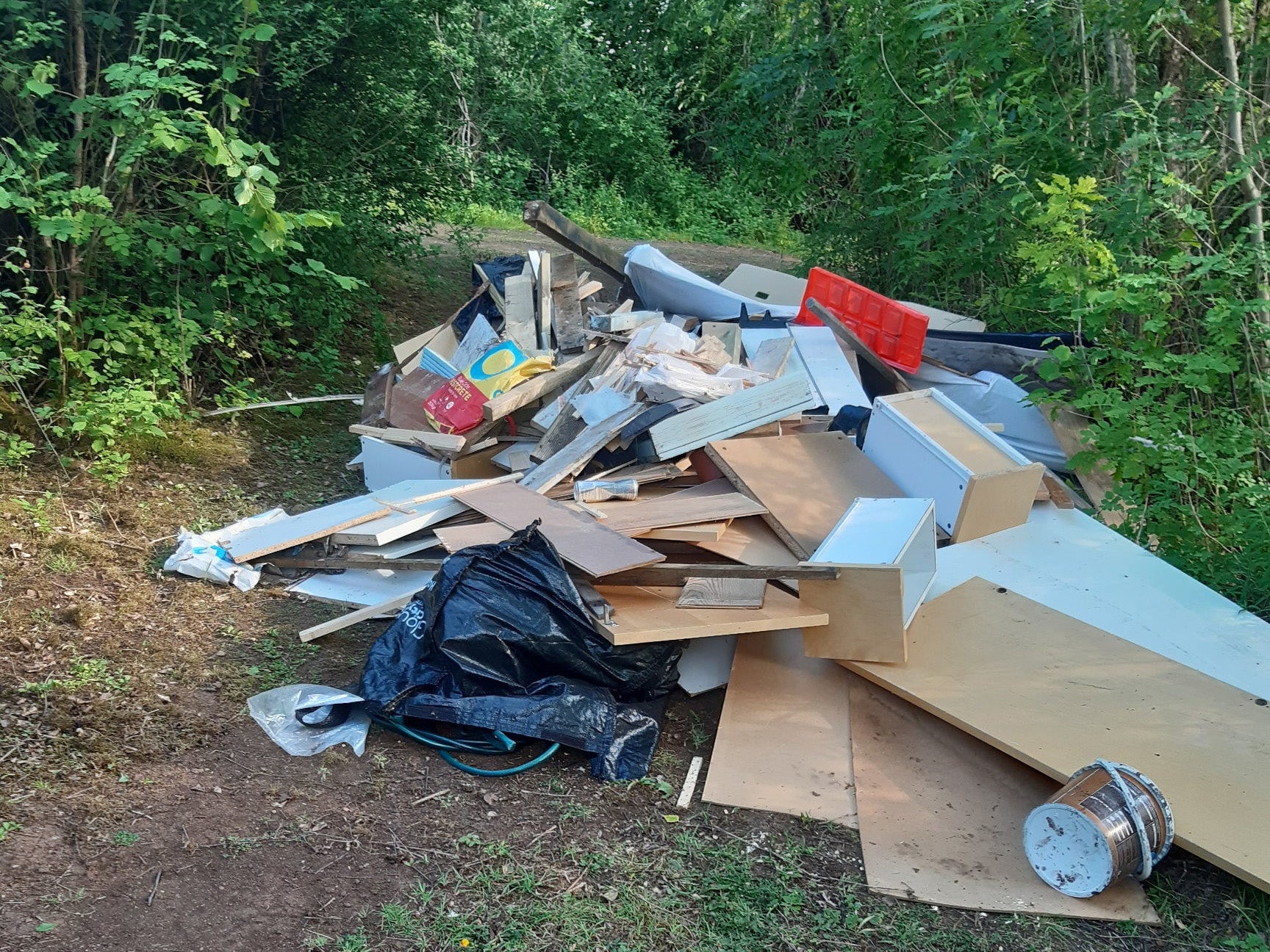‘Huge increase’ in fly-tipping and littering in woodlands during lockdown
‘Delicate habitats’ at risk due to irresponsible behaviour, warns charity

Your support helps us to tell the story
From reproductive rights to climate change to Big Tech, The Independent is on the ground when the story is developing. Whether it's investigating the financials of Elon Musk's pro-Trump PAC or producing our latest documentary, 'The A Word', which shines a light on the American women fighting for reproductive rights, we know how important it is to parse out the facts from the messaging.
At such a critical moment in US history, we need reporters on the ground. Your donation allows us to keep sending journalists to speak to both sides of the story.
The Independent is trusted by Americans across the entire political spectrum. And unlike many other quality news outlets, we choose not to lock Americans out of our reporting and analysis with paywalls. We believe quality journalism should be available to everyone, paid for by those who can afford it.
Your support makes all the difference.A huge increase in littering and fly-tipping in woodlands during lockdown is harming the countryside and putting nature at risk, a charity has warned.
The Woodland Trust said its more than 1,000 sites across the UK have stayed open, giving people access to woods and local wild throughout the pandemic.
But an increase in visitors to its woodlands has also seen a massive surge in littering, fly-tipping and irresponsible and damaging behaviour, the conservation charity has said.
The cost of clearing up the damage for the year is projected to be around £134,000, at a time when conservation charities have faced financial strain due to the lockdown.
And discarded rubbish can pose a threat to nature in many ways, the Woodland Trust said.
Plastics and metals do not naturally decompose and can persist in the natural environment for decades, changing the soil composition, while chemicals from more hazardous waste can leak into water courses.
Animals can suffocate in discarded plastic bags, get entangled in plastic can holders, and be injured by broken glass or get trapped in jars.
Straying off designated trails can damage delicate ancient environments which take many years to recover.
But the Woodland Trust has also seen even more damaging activity at some of its sites.

At Dering Wood, near Pluckley in Kent, people have chopped down and damaged trees, created camps and dropped litter and drug waste, as well as creating fire pits - forcing the charity to close the car park to try to curb the problem.
At Ashenbank in Gravesend, also in Kent, there have been similar problems and people have even been removing protected great crested newts to take back to their ponds at home, according to the Woodland Trust.
Other places which have seen littering, fly-tipping or anti-social behaviour include Skipton Castle Woods in North Yorkshire, Barber Wood, near Cheltenham in Gloucestershire, and Smithills, near Bolton.
The Woodland Trust urged people to follow the countryside code and take litter home.
Norman Starks, director of operations at the charity, said: “It is great that people are getting outside and visiting our sites to enjoy the benefits of nature, which are so important in these difficult times, but we have seen a huge increase in mess.
“The vast majority of people visit our sites respectfully but we have seen an increase in people misusing sites, for example setting up camps, chopping down trees, and other damaging activities such as mountain biking off designated trails.
“These are very delicate habitats; in some cases they are hundreds of years old. We need the public to join us in helping to continue to protect these environments.”
The trust said it had spent more than £1m cleaning up mess and fly-tipping across its woods over the last seven years, which is money that could be spent on planting and protecting woodland environments.
Press Association